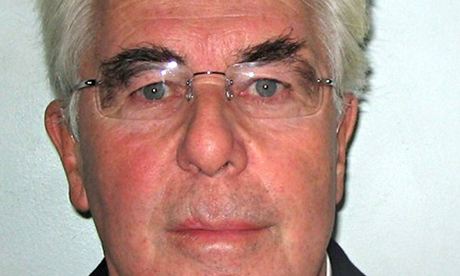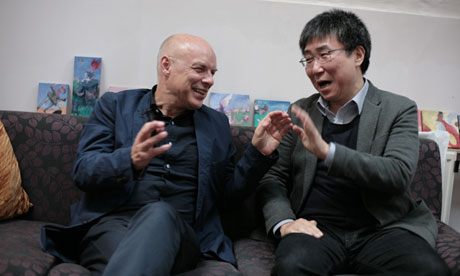Courtesy: Abhishek Purohit in Cricinfo
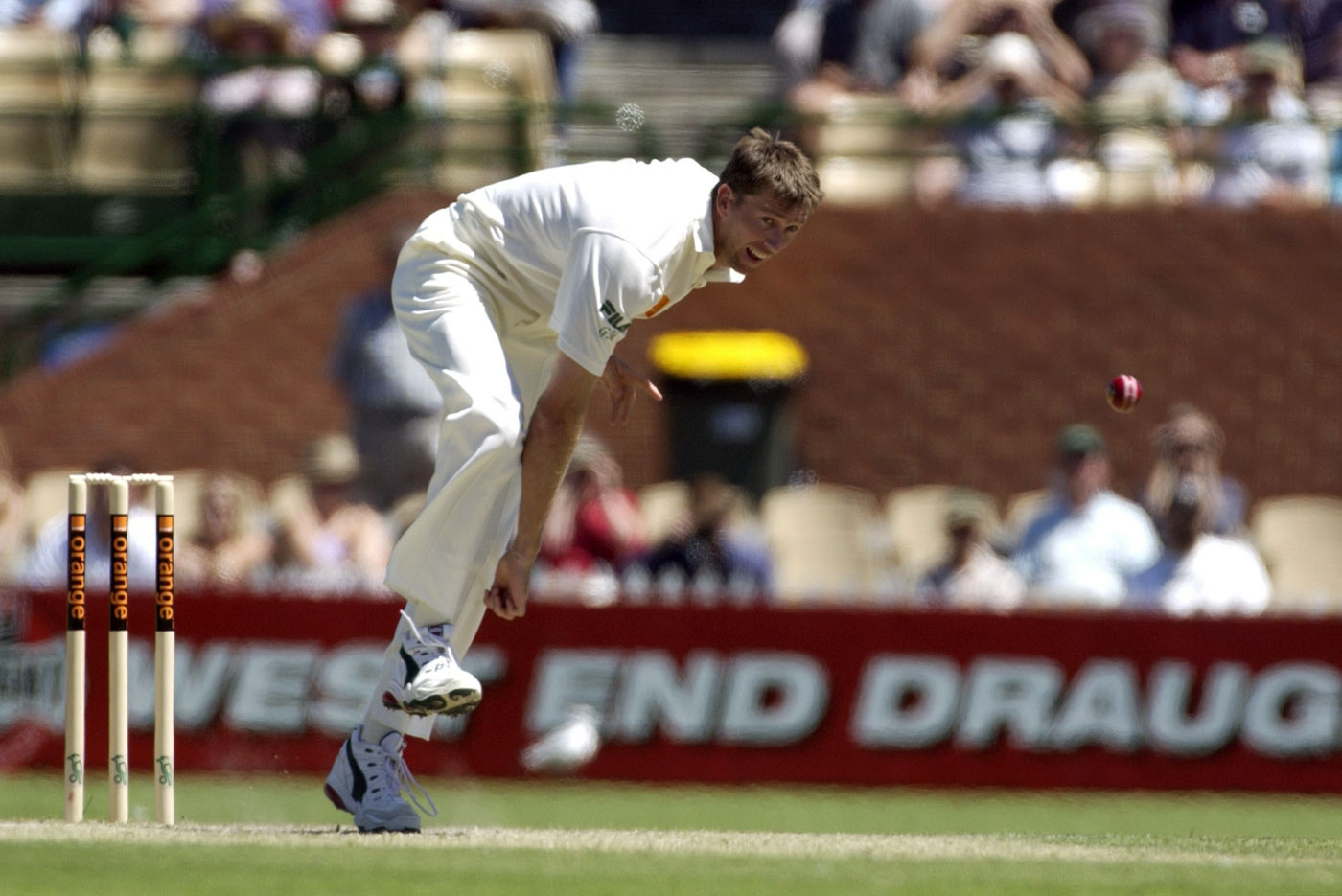
"When I was bowling well, I had already worked out the next two overs - what I was going to bowl and where I was going to bowl" © Getty Images
There is this line in your autobiography: "I can't ever remember having a bad dream about bowling. When I dreamt about cricket, I just bowled the ball I wanted to."
That is positive reinforcement. I used to call it visualisation. The night before a game, I'd think about who I was playing, and then how I'd bowled against those guys, if I had got them out previously. While I was playing, I could recall nearly all my wickets and how I got the batsman out.
That is positive reinforcement. I used to call it visualisation. The night before a game, I'd think about who I was playing, and then how I'd bowled against those guys, if I had got them out previously. While I was playing, I could recall nearly all my wickets and how I got the batsman out.
If you continually watch yourself do something well, it has a positive effect. If you sat down and watched yourself bowling, batting or fielding badly, it will probably have the equal effect. I just found that worked for me. Even when I played I'd visualise at the top of my mark the ball carrying through and what I wanted to deliver.
Was that how you had always been, or did you have to work on it?
I don't know, I think it is something that came pretty naturally. I am quite a positive person. I always try to see the good in every situation, the good in everybody. My wife has a go at me every now and then that I can still see too much good in people sometimes, when they probably do not deserve it. I have always been the glass-half-full person. Even if we lost a game, I'd work on the positives and then think about where we could improve.
I don't know, I think it is something that came pretty naturally. I am quite a positive person. I always try to see the good in every situation, the good in everybody. My wife has a go at me every now and then that I can still see too much good in people sometimes, when they probably do not deserve it. I have always been the glass-half-full person. Even if we lost a game, I'd work on the positives and then think about where we could improve.
Early into your career, you had a major injury and you had to work hard on your fitness. Everyone talks about physical fitness for a fast bowler. You were probably one of the strongest bowlers mentally. How important is mental strength for a fast bowler?
I came back from the West Indies in 1995. I'd torn my intercostal, one of my side muscles, where you get your power from for a fast bowler. I weighed 77 kilos, which is about 25 kilos less than what I am now. I was injured, and I thought that if I want to stay playing at this level, which I was absolutely loving, I was going to have to do something differently. So I found a trainer, who was one of the toughest, and worked with him. He made me nearly unbreakable. That was my attitude with what I wanted to do. I think being physically fit and strong is hugely important for a fast bowler.
I came back from the West Indies in 1995. I'd torn my intercostal, one of my side muscles, where you get your power from for a fast bowler. I weighed 77 kilos, which is about 25 kilos less than what I am now. I was injured, and I thought that if I want to stay playing at this level, which I was absolutely loving, I was going to have to do something differently. So I found a trainer, who was one of the toughest, and worked with him. He made me nearly unbreakable. That was my attitude with what I wanted to do. I think being physically fit and strong is hugely important for a fast bowler.
On the other side of things, you have to be mentally strong as well. My strength was probably more the mental side of the game rather than the skill side. I always had that self-belief that I was good enough. You have got to believe you are good enough, otherwise there is no point to it. I was prepared to work as hard as I could. The old saying: "The harder you work, the luckier you get" is very, very true. I would never give up. I was never satisfied. I'd always want to improve and do better next game. I felt we could win from any situation no matter how bad it was. I'd say I never gave up. I loved what I did, and if you have a real love and passion for what you do, you can't help but be successful.
| "I probably sledged myself a lot more than I sledged the batsman, because I had such high expectations of myself" | |||
I always had a game plan, what I was looking to achieve. When I was bowling well, I had already worked out the next two overs - what I was going to bowl and where I was going to bowl. It is just that mindset - knowing your game and yourself, how you work at your best and what you are looking to achieve. I never had any doubts when I was playing. I never worried about another bowler coming in and taking my position. All the focus was on what I wanted to achieve, and how I was going to go about doing it, and I just went out and did it.
Where would you say these values came from? Is it an Australian way or from the farm, from your early years?
I'd like to say it is a little bit of an Australian attitude. There were some batsmen in the team who did not like it when I made predictions and targeted batsmen of the other team. Maybe it was my upbringing - the country attitude. When you grow up on a farm you are instilled with a certain work ethic from a young age. We were driving tractors, working on the land, from a young age.
I'd like to say it is a little bit of an Australian attitude. There were some batsmen in the team who did not like it when I made predictions and targeted batsmen of the other team. Maybe it was my upbringing - the country attitude. When you grow up on a farm you are instilled with a certain work ethic from a young age. We were driving tractors, working on the land, from a young age.
Everyone has a conscious decision to make from any situation. They can either look at it from a negative perspective and let it affect them or look at it from a positive one and use that. I love life and I want to make the most of it. I try to live in the now as well. Don't think too much about the past - just experiences that have taught me things. Growing up on a farm and having that freedom as a young fellow and what my parents instilled in me - it all led me in that direction.
Shane Warne called your bowling method the torture technique. Drips on the forehead till the batsman gives up. Did you think of it that way?
The old Chinese water torture. Just drying them up, not letting them get any easy runs, slowly building the pressure until they got out or were shot mentally. I'd like to think I did a little bit more than slowly torture them, but it is an interesting comment from Warnie.
The old Chinese water torture. Just drying them up, not letting them get any easy runs, slowly building the pressure until they got out or were shot mentally. I'd like to think I did a little bit more than slowly torture them, but it is an interesting comment from Warnie.
How did you zero in on that method, coming at the taile-end of an era where fast bowlers looked to intimidate batsmen? Yours wasn't physical intimidation, it was more mental.
If I could have bowled 160kph or 100mph, I would have definitely been bowling that fast. Physically, I could not. But what I did do well is, I could land the ball. I had pretty good accuracy and I could get good bounce. I was not that quick, I did not swing the ball a great deal, but what I could do, I did very well. That was my strength.
If I could have bowled 160kph or 100mph, I would have definitely been bowling that fast. Physically, I could not. But what I did do well is, I could land the ball. I had pretty good accuracy and I could get good bounce. I was not that quick, I did not swing the ball a great deal, but what I could do, I did very well. That was my strength.
I only looked to get a batsman out one of three ways: bowled, lbw or caught behind. I thought it is pointless bowling middle stump because it would take all my slips out and it makes it easy for batsmen to score runs on the leg side. So off stump, or just outside, was where I wanted to bowl.
I had that mental strength and I loved the challenge of bowling to guys who were classed the best. I loved bowling in pressure situations. If I miss anything in cricket, it is being in those pressure situations, where it comes down to you having to perform for the team to win. That is what I loved.
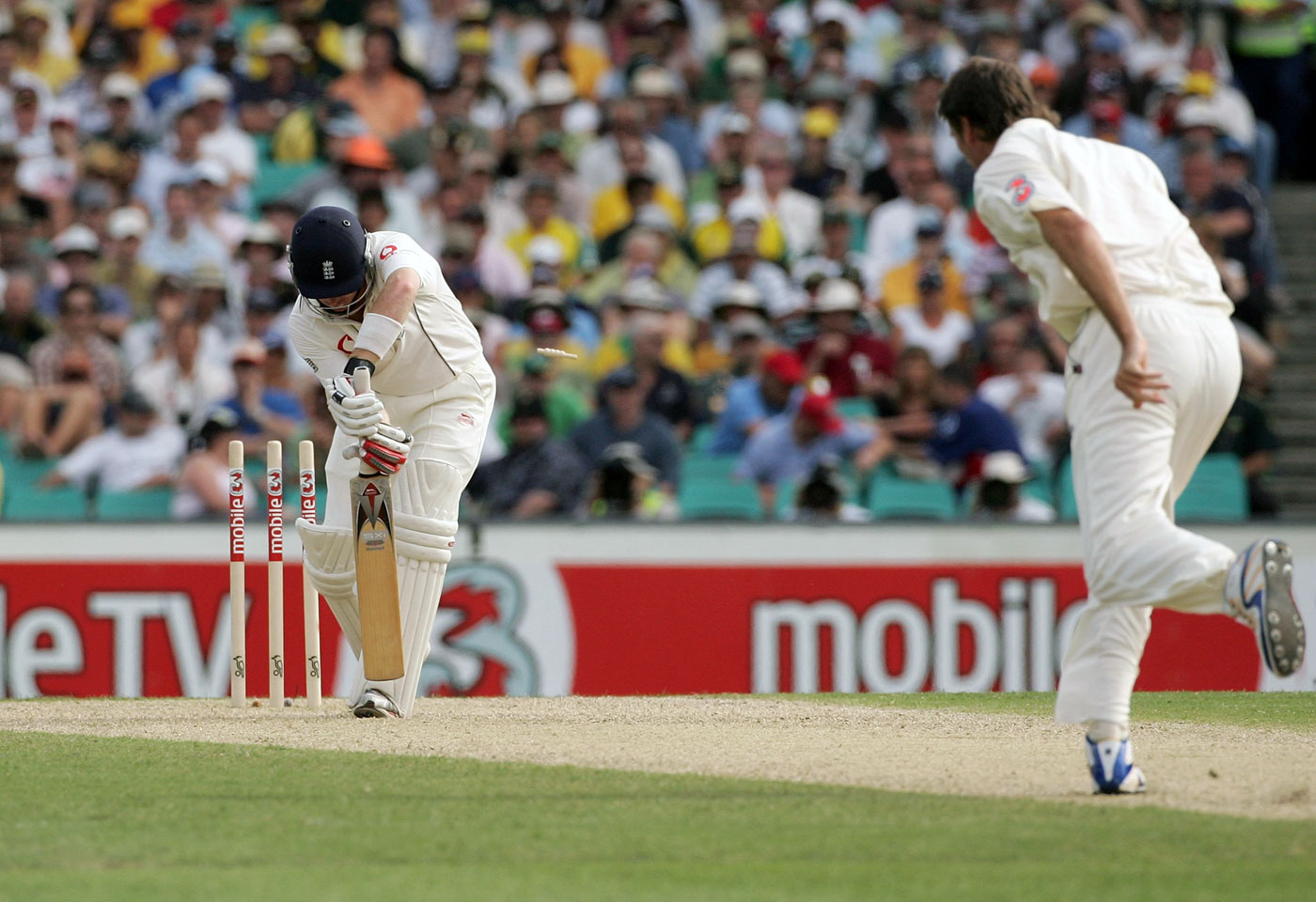
"I only looked to get a batsman out one of three ways: bowled, lbw or caught behind" © Getty Images
People saw some of your qualities in Mohammad Asif. He said that line was mandatory and that he hated giving runs off the pads. How important was line to you?
I hated giving the batsman even a single. If the batsman hit me for four, it wasn't because he hit a good shot. It was because I had bowled the ball where he could hit me for four. So I was a bit annoyed with myself. It is all about control. Bowling the ball in the right area, hitting the deck, top of off stump, where the batsman is not sure whether to come forward or go back. A lot of people call it the corridor of uncertainty. That is what I try to stipulate when I speak to young bowlers at the MRF Pace Foundation - that it is about control.
I hated giving the batsman even a single. If the batsman hit me for four, it wasn't because he hit a good shot. It was because I had bowled the ball where he could hit me for four. So I was a bit annoyed with myself. It is all about control. Bowling the ball in the right area, hitting the deck, top of off stump, where the batsman is not sure whether to come forward or go back. A lot of people call it the corridor of uncertainty. That is what I try to stipulate when I speak to young bowlers at the MRF Pace Foundation - that it is about control.
You look at Mitchell Johnson. He is still bowling 150kph, but he has got control now, and that makes him a lethal bowler. If the bowlers have control, they can bowl it where they want to. They are going to be a lot more effective, be able to build pressure, and are going to get a lot more wickets.
I do not like to see guys substitute pace for control. You just need to work harder on getting that control without giving up something else. If you have got control and pace, you are a pretty dangerous bowler.
That length seemed irritating even on television. What do you do with that length? Do you come forward or go back? Was that length natural?
It was pretty natural. I never looked at the spot on the wicket where I wanted to bowl. It was always sort of locked in at the top of my mark that this is the type of delivery I want to bowl and it is all about feel. The last thing I wanted to do was bowl it where the batsman wanted it to come. It is that in-between length where they cannot really come forward or go back. If they go forward it is not quite there, if they go back it is not there and they nick. That length is a different length on every wicket. You have to assess the conditions, the bounce, the seam, and then you have to adjust accordingly. I think that was one thing I did. I could adjust to the wicket very quickly, find out that length in that corridor of uncertainty and try to capitalise on that.
It was pretty natural. I never looked at the spot on the wicket where I wanted to bowl. It was always sort of locked in at the top of my mark that this is the type of delivery I want to bowl and it is all about feel. The last thing I wanted to do was bowl it where the batsman wanted it to come. It is that in-between length where they cannot really come forward or go back. If they go forward it is not quite there, if they go back it is not there and they nick. That length is a different length on every wicket. You have to assess the conditions, the bounce, the seam, and then you have to adjust accordingly. I think that was one thing I did. I could adjust to the wicket very quickly, find out that length in that corridor of uncertainty and try to capitalise on that.
They used to call you the Metronome. How hard is it mentally to stick to control? You had decent pace. Didn't you ever feel like indulging yourself?
I look at those things as a compliment. Precision is something I look upon fondly. My goal was to bowl what I classed as the perfect game, where every ball I bowled went exactly where I wanted to bowl it. That is what I was striving for. That does not mean I have to bowl every ball on the same spot. You can still intimidate them with short-pitched bowling, with aggressive fields, set a person up for an inswinging yorker, but it is just about being able to land the ball where you want to land it. Being a fast bowler at the end of the day is an aggressive thing. It is just not being aggressive with sledging. It is about body language, attitude, field placements. It is about the way you bowl. You have got to be the whole package.
I look at those things as a compliment. Precision is something I look upon fondly. My goal was to bowl what I classed as the perfect game, where every ball I bowled went exactly where I wanted to bowl it. That is what I was striving for. That does not mean I have to bowl every ball on the same spot. You can still intimidate them with short-pitched bowling, with aggressive fields, set a person up for an inswinging yorker, but it is just about being able to land the ball where you want to land it. Being a fast bowler at the end of the day is an aggressive thing. It is just not being aggressive with sledging. It is about body language, attitude, field placements. It is about the way you bowl. You have got to be the whole package.
How important was bounce to you? Ricky Ponting has said that it is more bounce than pace that gets batsmen out.
Speaking to the guys who were classed the best batsmen in the world - you mentioned Ricky there, [Brian] Lara, [Sachin] Tendulkar, [Rahul] Dravid, guys like that, they said they would rather face someone bowling at 150kph who skidded the ball on rather than someone who bowled mid-130s and got that bounce.
Speaking to the guys who were classed the best batsmen in the world - you mentioned Ricky there, [Brian] Lara, [Sachin] Tendulkar, [Rahul] Dravid, guys like that, they said they would rather face someone bowling at 150kph who skidded the ball on rather than someone who bowled mid-130s and got that bounce.
That was one of my weapons. If I tried to bowl too fast, I'd probably go a bit low and I lost that bounce, which I felt was a more dangerous weapon than an extra 4-5kph in pace. That was my strength. I could bowl good areas and I got bounce and a bit of seam movement and that brought all my catchers into play.
| "If I had had coaching when I was younger, they would have probably tried to get me side-on. My body just found the most natural way to bowl and it worked for me" | |||
What was your attitude to sledging? Was it an additional weapon?
Yes and no. Some batsmen, if you have a bit of chat to them, they went to water. Someone like Lara, if you had a chat to him one day, you'd get him out because he'd go to water. Next day, if you have a chat to him, that's it, you are never going to get him out. So it worked against some batsmen, for some it didn't.
Yes and no. Some batsmen, if you have a bit of chat to them, they went to water. Someone like Lara, if you had a chat to him one day, you'd get him out because he'd go to water. Next day, if you have a chat to him, that's it, you are never going to get him out. So it worked against some batsmen, for some it didn't.
It is not something where you went out and said, "We're going to target this guy. We are going to sledge him." For me, personally, I probably sledged myself a lot more than I sledged the batsman, because I had such high expectations of myself. And half the time if I said something to the batsmen it was probably more out of frustration that I didn't achieve what I wanted to with that particular delivery.
It is part of the game. Test cricket is a test physically, skill-wise and mentally. And probably the mental side of the game is bigger than the other two.
How did you succeed in the subcontinent? Did you modify your approach, because not many overseas fast bowlers have done well here?
I tried to adjust to the conditions as quickly as I could. What are the positives of being a fast bowler in India? To me, the new ball is hard. It will carry through okay, so you have to use the new ball. Then the ball gets a bit soft, it stops swinging. Just got to keep it tight, work on the ball, then you are going to get reverse swing and all of a sudden it comes back into the bowler's favour. That is all I concentrated on. Use the new ball when it is hard and when it is old, look after it, get reverse swing, and set fairly straight fields and bowl a lot straighter than what you would in Australia.
I tried to adjust to the conditions as quickly as I could. What are the positives of being a fast bowler in India? To me, the new ball is hard. It will carry through okay, so you have to use the new ball. Then the ball gets a bit soft, it stops swinging. Just got to keep it tight, work on the ball, then you are going to get reverse swing and all of a sudden it comes back into the bowler's favour. That is all I concentrated on. Use the new ball when it is hard and when it is old, look after it, get reverse swing, and set fairly straight fields and bowl a lot straighter than what you would in Australia.
That is all I tried to do, and again, I was trying and looking at the positives, or what the game plan was on these wickets, in these conditions, and how to best succeed. I still did not want to go for runs. I never set a batsman up by giving him runs. I could not bring myself to do that.
Did you have to be more patient in Asia?
It still comes back to execution and control. My stats in India were not too bad compared to the rest of the world. I did not worry that I was bowling in India compared to Australia and the UK. It was just a challenge that I enjoyed. To be classed a good bowler or a great bowler, you have got to be able to perform in every condition, every country, on every type of wicket. Patience, working to a game plan, bowling in partnerships - they were all part of the game. But ultimately my motivation was taking wickets. The end result was that I was looking to get that batsman out.
It still comes back to execution and control. My stats in India were not too bad compared to the rest of the world. I did not worry that I was bowling in India compared to Australia and the UK. It was just a challenge that I enjoyed. To be classed a good bowler or a great bowler, you have got to be able to perform in every condition, every country, on every type of wicket. Patience, working to a game plan, bowling in partnerships - they were all part of the game. But ultimately my motivation was taking wickets. The end result was that I was looking to get that batsman out.
There were reverse-swing exponents like Wasim and Waqar. And guys like you and Curtly Ambrose made seam bowling famous at that time. Was it always seam for you?
Pretty much so. When I first got selected to play for Australia, a lot of people were saying you have to bowl a consistent outswinger to be successful at Test cricket. And I wanted to be successful at Test cricket so I started swinging the ball. I remember a Test I played against England at the Gabba in the 1994-95 series and I was swinging the ball quite a lot. I ended up with match figures of none for 101 at the end of that match and did not play the next three games. I went back and thought, "Well, I got picked for a reason. I got picked because of the way I bowl. So I am just going to stick to that. That bounce. That seam movement. And building pressure." That was a good learning experience. Listening to other people did not work for me. I tried it and I learned from it.
Pretty much so. When I first got selected to play for Australia, a lot of people were saying you have to bowl a consistent outswinger to be successful at Test cricket. And I wanted to be successful at Test cricket so I started swinging the ball. I remember a Test I played against England at the Gabba in the 1994-95 series and I was swinging the ball quite a lot. I ended up with match figures of none for 101 at the end of that match and did not play the next three games. I went back and thought, "Well, I got picked for a reason. I got picked because of the way I bowl. So I am just going to stick to that. That bounce. That seam movement. And building pressure." That was a good learning experience. Listening to other people did not work for me. I tried it and I learned from it.
My strength was hitting the deck, coming from fairly high, using that bounce and hitting the seam. Sometimes that would carry straight through, sometimes it would come back in off the seam, predominantly more so than away, but that natural variation there was enough to unsettle a lot of batsmen.
That fast incutter. Was that an effort ball?
It was more a natural delivery. Looking at my action - because I jumped in a bit at the end - I had a strong core, which allowed me to stay tall without falling away. But it meant I had to go across myself, which lent itself to hitting the wicket and going in to the right-hander or going away from the left-hander.
It was more a natural delivery. Looking at my action - because I jumped in a bit at the end - I had a strong core, which allowed me to stay tall without falling away. But it meant I had to go across myself, which lent itself to hitting the wicket and going in to the right-hander or going away from the left-hander.
Did you always have a repeatable action?
That is the way I bowled. I didn't have any coaching. The first coaching I'd ever had, I was 22. And I did not model myself on anyone else. That held me in good stead, because back when I was growing up, it was all "get side-on". Dennis Lillee had the classical side-on action and he was my hero growing up. So if I had had coaching when I was younger, they would have probably tried to get me side-on. Who knows where I could have been? I may not have ever played. My body just found the most natural way to bowl and it worked for me.
That is the way I bowled. I didn't have any coaching. The first coaching I'd ever had, I was 22. And I did not model myself on anyone else. That held me in good stead, because back when I was growing up, it was all "get side-on". Dennis Lillee had the classical side-on action and he was my hero growing up. So if I had had coaching when I was younger, they would have probably tried to get me side-on. Who knows where I could have been? I may not have ever played. My body just found the most natural way to bowl and it worked for me.
Nowadays we know a lot more about coaching. There is front-on and side-on, even somewhere in between. As long as your hips and shoulders are in line, it does not matter where you are within that range. Your back will be fine. It is when your shoulders and hips get out of line that you have problems.
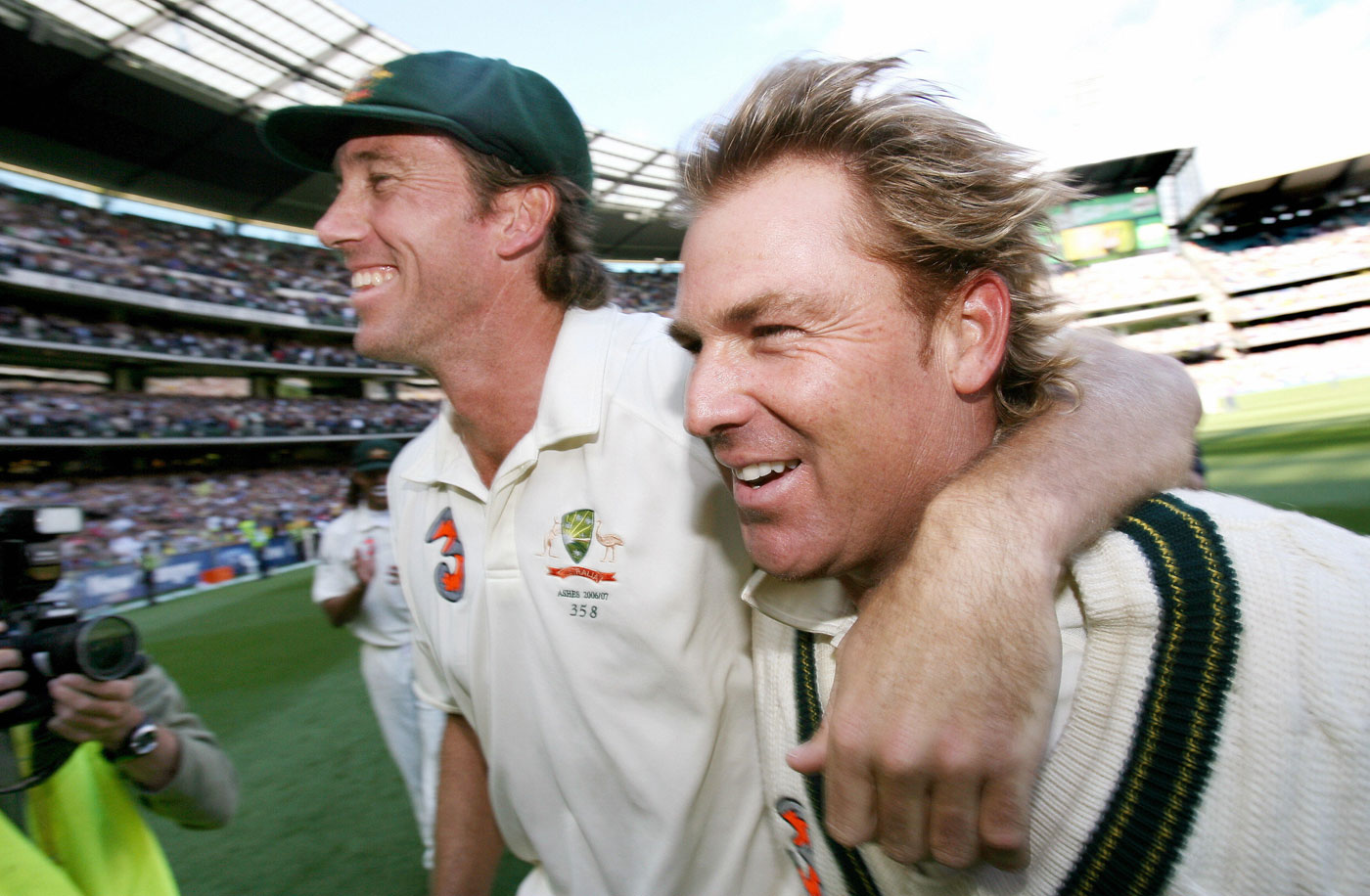
"With Warnie, the partnership we had was quite amazing. Two totally different styles of bowling but two very similar bowlers in the way we went about it" © Getty Images
You lost a bit of speed towards the end. How did you make up for it?
It wasn't a conscious thing to lose speed. That is the way it happened. But then it is all about control and bowling where you wanted to. Look at Jason Gillespie, who was a similar style of bowler to me but a little bit quicker. A lot of batsmen would play and miss because though they picked the line, it bounced and seamed and was past the bat before they could adjust. Whereas when I hit the deck and it did something off the wicket, the batsman would see it and had time to adjust and maybe just follow it. I got a lot more edges because of that. The fact that I was not express sometimes worked in my favour.
It wasn't a conscious thing to lose speed. That is the way it happened. But then it is all about control and bowling where you wanted to. Look at Jason Gillespie, who was a similar style of bowler to me but a little bit quicker. A lot of batsmen would play and miss because though they picked the line, it bounced and seamed and was past the bat before they could adjust. Whereas when I hit the deck and it did something off the wicket, the batsman would see it and had time to adjust and maybe just follow it. I got a lot more edges because of that. The fact that I was not express sometimes worked in my favour.
Those legendary partnerships - McGrath-Warne, McGrath-Gillespie - which one was dearer to you?
They were both equally important. I loved bowling with Jason at the other end. We still have a great friendship and I always enjoyed that. With Warnie, the partnership we had was quite amazing. Two totally different styles of bowling but two very similar bowlers in the way we went about it. He and I had very good control. We could build pressure from both ends and I can definitely thank Shane for a lot of my wickets, and he has come out and said he thanks me for some of his wickets as well. To bowl with Shane at the other end was something pretty special. We won the majority of the Test matches we played in and took over 1000 Test wickets between us. They are not bad stats.
They were both equally important. I loved bowling with Jason at the other end. We still have a great friendship and I always enjoyed that. With Warnie, the partnership we had was quite amazing. Two totally different styles of bowling but two very similar bowlers in the way we went about it. He and I had very good control. We could build pressure from both ends and I can definitely thank Shane for a lot of my wickets, and he has come out and said he thanks me for some of his wickets as well. To bowl with Shane at the other end was something pretty special. We won the majority of the Test matches we played in and took over 1000 Test wickets between us. They are not bad stats.
Were you and Curtly Ambrose similar bowlers?
I think similar in what we delivered. Curtly just did it so easy. He was so loose: just come up and hit the deck and he could really get bounce and seam. He was one of the bowlers I admired from among those I played against. Curtly had two or three gears where he could crank it up. He was always pretty relaxed but if you got under his skin or fired him up, all of a sudden he could bowl another 5 to 10kph quicker and then he was a real handful.
I think similar in what we delivered. Curtly just did it so easy. He was so loose: just come up and hit the deck and he could really get bounce and seam. He was one of the bowlers I admired from among those I played against. Curtly had two or three gears where he could crank it up. He was always pretty relaxed but if you got under his skin or fired him up, all of a sudden he could bowl another 5 to 10kph quicker and then he was a real handful.
Probably a good example is our results of bowling to Michael Atherton. I got Athers out 19 times in Tests and Amby got him 17 times. So the fact that we were similar bowlers was unfortunate for Athers. Probably a style of bowling he did not enjoy the most.
Did it get too easy against Athers as it went on?
You'd never say it was too easy. There was only one time where I got him out where I felt it was probably a bit too easy. And that was his last Test. I wasn't bowling that quickly, it was gun-barrel straight as the batsmen say. And I was outside off stump, and he just kept playing and missing. So I thought I'd get one a bit straighter, he just nicked it to Warnie at first slip. And I thought, "it should not really be that easy." But I think probably Athers was a bit shocked. Definitely had a mental edge over him at that stage.
You'd never say it was too easy. There was only one time where I got him out where I felt it was probably a bit too easy. And that was his last Test. I wasn't bowling that quickly, it was gun-barrel straight as the batsmen say. And I was outside off stump, and he just kept playing and missing. So I thought I'd get one a bit straighter, he just nicked it to Warnie at first slip. And I thought, "it should not really be that easy." But I think probably Athers was a bit shocked. Definitely had a mental edge over him at that stage.
One of my childhood memories is Lara trying to defend against you off the back foot and a bail going up in the air. What were those battles like?
I enjoyed bowling against guys who were classed the best. That really tells you how good you are. I loved bowling to Sachin, Brian. That wicket you are mentioning there was in the 1999 World Cup, at Old Trafford. We were under the pump, we had to win every game to stay in the World Cup. Lot of people say it was an amazing delivery. I think it did just enough to beat Brian's bat and just clipped the top of off. Mark Waugh said it was gun-barrel straight, that Brian just played the wrong line, and it wasn't anything special.
I enjoyed bowling against guys who were classed the best. That really tells you how good you are. I loved bowling to Sachin, Brian. That wicket you are mentioning there was in the 1999 World Cup, at Old Trafford. We were under the pump, we had to win every game to stay in the World Cup. Lot of people say it was an amazing delivery. I think it did just enough to beat Brian's bat and just clipped the top of off. Mark Waugh said it was gun-barrel straight, that Brian just played the wrong line, and it wasn't anything special.
How quickly you remembered that dismissal. Do you still remember most of your dismissals?
Some dismissals I remember. Back when I had 360-370 Test wickets, I could sit here and write them all down in order and picture how I got them out. I guess that was my motivation, and my goal was taking wickets. Bit long in the tooth now and the brain does not work as well as it used to, but I can still remember certain series, certain Tests and what have you.
Some dismissals I remember. Back when I had 360-370 Test wickets, I could sit here and write them all down in order and picture how I got them out. I guess that was my motivation, and my goal was taking wickets. Bit long in the tooth now and the brain does not work as well as it used to, but I can still remember certain series, certain Tests and what have you.
Did it ever change for you under different captains? Or were you always the same?
No, the game plan was pretty similar as it went on. It was only the West Indies series in 1995 where our game plan was to bowl aggressively to their bowlers, to bowl lot of short-pitched stuff to intimidate them, to show them that we were here to win.
No, the game plan was pretty similar as it went on. It was only the West Indies series in 1995 where our game plan was to bowl aggressively to their bowlers, to bowl lot of short-pitched stuff to intimidate them, to show them that we were here to win.

